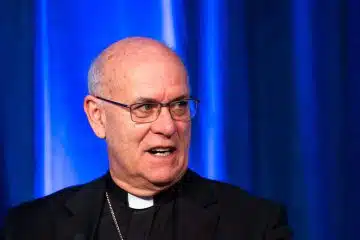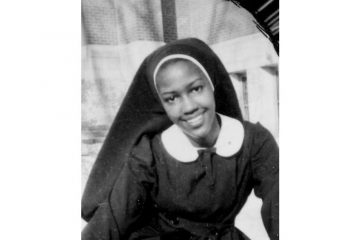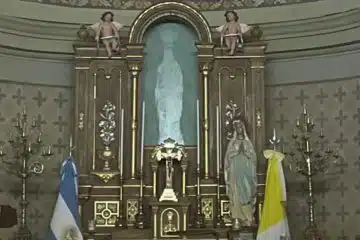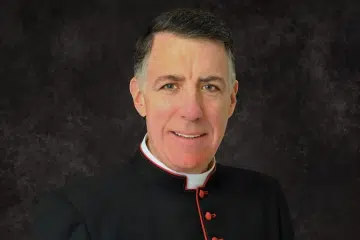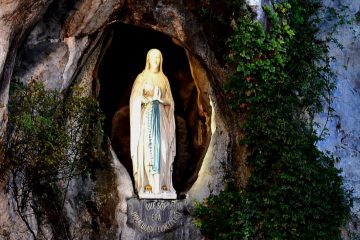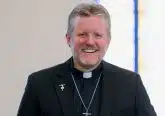Area institutions emphasize value of Catholic college education
Thursday, February 25, 2010
By Eileen Connelly, OSU and David Eck
ARCHDIOCESE — After studying war and conflict in her classes as a political science and journalism major, University of Dayton senior Rachael Bade put her passion for peace into action by forming a peace group on campus.
“It’s not just about learning,” Bade said. “It’s about using (knowledge) and helping the community.”
UD students not only focus on their field of study, but are also taught to think beyond themselves. A mission of teaching values and encouraging service permeates the academic core of the Catholic university, founded and operated by the Marianists.
“If you’re looking at a university education to help give you lifelong capabilities as a learner but also to help you think about what you are called to be as a person, then Catholic colleges become especially attractive,” said Paul Benson, dean of the College of Arts and Sciences at UD. “Across the whole university we really have a shared vision of our mission. At secular institutions there is not that kind of shared vision. Everyone comes to the university with the their own purpose.”
Catholic social teaching is reflected in the UD curriculum, including required courses in humanities. In addition to a values-based foundation, the university focuses on the integration of learning and engagement with the world in the 21st century.
“Students and parents are seeking an experience that forms young people in their lives,” Benson said. “Parents anywhere want to know that their children will be happy in the university experience, but more than that they want to know that their children will grow as a person.”
An example of the mission at UD can be found in the study of new technologies. Science, technology, mathematics and engineering (STEM) students are not only encouraged study technology, but to also take into account the ramifications it would have on society as a whole. They are urged to keep the poor in the back of their minds.
“It is that interaction between faith and reason that makes us so unique,” said Joseph Saliba, UD provost. “We’re not focusing on our goal solely being STEM.”
A commitment to service and values is also at the heart of an education at Xavier University in Cincinnati.
“At its core is the faith tradition,” said Mark Meyers, dean of Xavier’s College of Arts and Sciences. “Those are the roots that everything else grows from. It’s not just studying about your own faith for every student. How do you put that into effect in the world around us? Our students want to get immersed in the community. They want to be a part and a continuing presence in the community.”
Philosophy and theology courses are built into the various academic disciplines, and professors who want to start a new program must demonstrate how it serves the school’s mission of serving others and being part of the community, Meyers said.
“There is a service expectation that’s created,” Meyers said. “I think what you will get at the other end with a Xavier University graduate is someone that’s been on a faith journey and started a faith journey that will last for their entire life.”
At the College of Mount St. Joseph, the school’s Catholic identity means, “living our mission, which is to provide a Catholic liberal arts education with a career orientation” said John Trokan, chairperson of the religious studies department. “What that means concretely is that as an academic community we are committed to living out of Catholic intellectual tradition and living that out in light of our mission statement, as well as the vision and charism of the Sisters of Charity, who founded our institution.”
That charism includes a focus on doing justice, learning from and being in solidarity with the poor, being prophetic in the church and society and risking a caring response to the needs of others.
These principles, said Trokan, are integrated into every aspect of MSJ’s curriculum and the teaching methodology and inherent in all programs and services, extracurricular activities, sports, service learning and immersion experiences.
“In terms of the nature of a Catholic education we operate under the assumption that we are educating our students for others, not just for self-satisfaction or the accumulation of wealth,” Trokan said. “Our goal is that our graduates carry this with them and that they’ll make the world a better place. That’s the qualitative difference in terms of the values and ethical responsibilities that come with a Catholic education.”
When prospective students and their parents meet with Peggy Minnich, director of admissions at MSJ, she lets them know that “their faith will be infused into their college experience.”
Also stressed, for non-Catholic students, is the “fact that we work with all faiths and believe that college is a time for spiritual exploration for all denominations and beliefs,” Minnich added. “We hope that all individuals can experience . . . our Catholic identity, our inclusiveness and sense of being part of that larger community.”
Minnich said her office spends a great deal of time working with families and talking about the “sticker shock” that is often associated with the cost of a Catholic higher education. What surprises them, she noted, is that 99 percent of MSJ’s fulltime freshman receive financial aid, be it federal, state or college funds.
“Families find out that the cost of a Catholic, private education can be affordable and more in line with a public or larger school. They realize they can do it, and that makes them look at the institution in a different light,” she said.
Eileen Connelly, OSU, can be reached at [email protected] and David Eck can be reached at [email protected].





